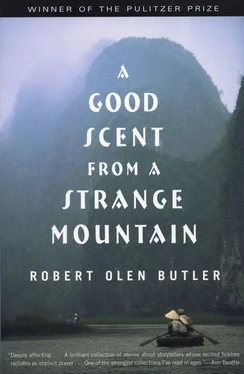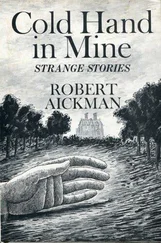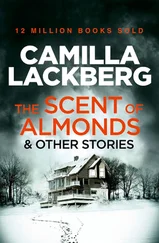“I’m Esteban,” the driver said.
“You guys hate your C rations as much as we hated ours?” This was Frank broadcasting from another part of the world.
“You can call me Esteban.”
“I don’t mean to drag you around,” Eileen said, leaning a little bit across me to address Vinh.
“It was rude of me to try to overrule your wishes.” Vinh spoke with a combination of gentleness and firmness that I have always admired in him.
“It’s very dose now,” Esteban said.
I wanted this for myself, too. I made my voice firm for the driver. “Fine. Drive us past.”
“Of course we hated our C rations,” Vinh said.
“It figures,” Frank said.
“But not as much as we’d hate a fish on a stick,” Vinh said, and I wished I had the privilege of digging my knuckle into his arm, even if it was to provoke only a casual flick in response.
Frank laughed. “Roger that.”
I was sorry I was sitting in the center in the backseat. I wanted to just put my head out the window and watch the street go by like there was nobody else around. But as it was, I looked across Eileen and watched the shaggy fields and the men talked some more about Army food and we passed a low, whitewashed arena with big cutout signs on top, the silhouettes of bulls. A place for bullfights, I supposed. And then there were palm and coconut trees and then a run of shops and I just kept my mind out the window, as Esteban had finally let himself be shut up by the husbands.
Then we took a curve and there was a statue of a seahorse and we were running along the beach and we passed an artist on the street with his work propped up on display, and the paintings were of tigers and Jesus Christ and Elvis Presley on black velvet, and I hoped Vinh didn’t see this, but it all made me smile. Am I somehow perverse this way? Not that I would buy a black-velvet Elvis Presley, much less hang it on a wall in my home. But there is something that makes me smile about it. I have seen Elvis Presley many times as they sell his face and his voice on late-night television — The King, The One and Only, The Idol of Millions, The Loved and the Mourned, just a phone call and a credit-card number away. Why does this make me feel comfortable? Even safe?
The car was on a cobbled street now and we were jiggling and rattling about and the men’s voices were cracking and they stopped speaking. And soon we turned into a narrow lane and Esteban said, “Up ahead is where the lovers lived in 1963.”
We bounced along and there was a stone wall on one side and an undetached run of houses on the right and Esteban said, “It is where you see the bridge over the street.”
A stone pedestrian bridge rose from a roof covered in rosebushes and arched over the cobblestones and landed on the second floor of the house across the way. Esteban stopped the car. “Would you like to get out and take pictures?”
I felt Eileen turn my way, though it was probably Vinh that she looked at. “No,” she said. “This is fine.”
“There were really two houses,” Esteban said. “The one on the left was Elizabeth Taylor’s and the one on the right was Richard Burton’s, and the whole world watched that bridge for months to see them go back and forth.”
I’m sure that Eileen and I were quite a Sight to further irritate our husbands — we both leaned forward and strained to look at the two houses. The bridge was tan and had a waist-high rail with a row of little pot-bellied balusters. I’d learned that word, “balusters,” some-where — I don’t remember where-and if it ever appears on a quiz show, I will probably be the only one to get it right. Why do I go off on this little detail now? Because my mind snagged on it even then, even though I obviously was very interested in the houses before me. And why was I distracted by that detail? Sometimes I can read myself pretty well. It was because the bridge between the two houses made me feel bad. It seemed so empty. It arched there against the blue sky and it cried out for some lover to come across and take his woman in his arms, But it was empty. The rosebushes, which were full of blooms, nodded faintly in a breeze and the bridge stayed empty.
“You like to buy this house?” Esteban said. “It is for sale. Richard Burton bought it for Liz Taylor as a birthday present many years ago and do you know how much he paid?”
“What year?” This was Vinh, whose sense of business was suddenly stimulated.
“I don’t know. Maybe 1964 Sometime about then.”
“Seventy-five thousand,” Vinh said without a pause, and all I could see was that empty bridge. The man who’d crept over it at night so that the world would not notice, he was dead.
“Very close, senor. Sixty thousand dollars American.”
Vinh leaned forward next to me and I sat back. He said, “And what are they asking for the house now?”
“One million.”
“Ha!” Vinh declared, and I’m not sure what business conclusion this represented. But when Esteban said that the house had been for sale for nearly five years, and no one had bought it yet, Vinh nodded like he wasn’t surprised.
It was now that a little voice chirped into the car. We all turned our heads and a young girl was at the back window, right next to Vinh, and she had a basket slung over her shoulder. She lifted a yellow flower that was really very beautiful, with large blossoms and a white center. “You buy?” she said. “Copa de oro.”
Esteban turned around in his seat. “‘Copa de oro,’ you know what that is?”
“A cup of gold,” Eileen said.
“Right, senora. From the movie.”
“Yes,” Eileen said. “Richard Burton buys it for Sue Lyon at the beginning of ‘The Night of the Iguana.’”
I was impressed. This was a detail that I myself had forgotten. I wanted to reach across Vinh and take the flower. I almost did. I had told my arm to rise and move through my husband’s space and pluck this beautiful flower from the little girl’s hand. I remembered the scene now. Burton, the defrocked and alcoholic priest who could not restrain his desire for the women who reminded him that he was alive, buys this flower, the cup of gold, for the sexy young girl on the bus tour that breaks down here in Puerto Vallarta. Even this ravaged and failed man knew that a woman would love a flower such as this, the copa de oro. I was prepared now to lift my arm, to take action, even as Esteban said, “Would you like to buy a flower?”
But Vinh and Frank in chorus said, “No,” and Frank said, “We’ve got this movie set to get to,” and there was nothing more to be done.
Esteban stuck his head out the window and said something to the girl — there was clearly some connection between them, at least a working arrangement for when he brought tourists to this spot. I’m sure Vinh noticed it and I figured he felt smug about it, so as the taxi began to move, I leaned near him and said, “I loved that flower.”
I don’t say something like this very often, so it must have had a sharp effect, because Vinh turned his face to me and he looked very sad for a moment. It was clearly sadness, to my eye. His mouth sagged and his eyes softened, and I wondered what he would do. But we were going faster now and I turned away to look at the bridge growing larger and then we passed beneath it, the shadow rushing over the car, and Vinh did not say, Wait, let’s go back and get a flower. He did not even say, Oh, I’m sorry, Gabrielle; perhaps another time. He said nothing at all, though he may have continued to wear his sad face. I don’t know. I didn’t look at him.
The taxi was climbing in the hills now, the roads twisting and turning. At first beneath us were the stacked shacks of the poor people, with the baked red mission-tile roofs, and then we were among the villas, the immaculate high walls and the stippled stucco, and then we were rising even above the rich and I watched the ocean and it was very beautiful, very romantic, and I liked being near Vinh, even if he was hardened against all of this.
Читать дальше












